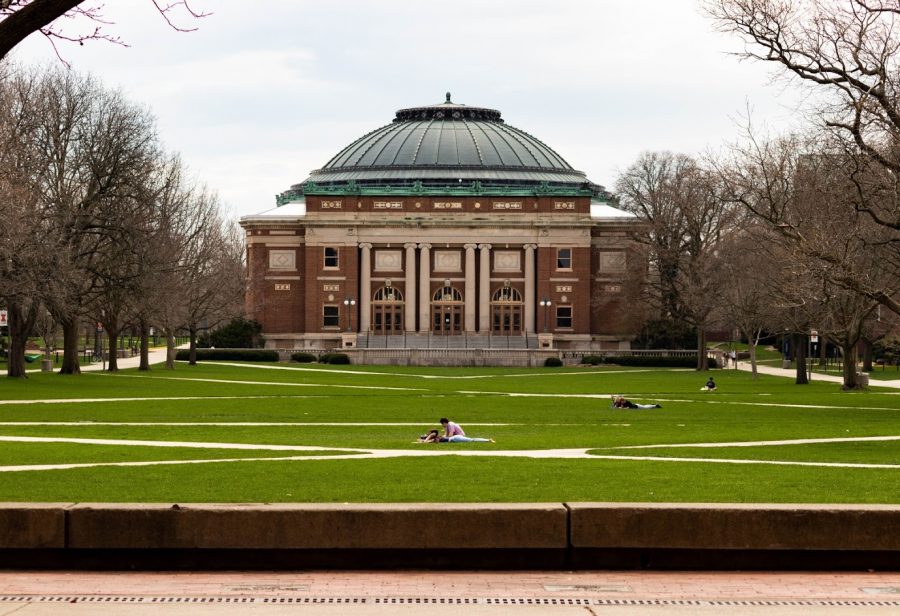University creates saliva COVID-19 test for upcoming fall semester
The main quad remains relatively barren at 1:48 p.m. on April 3 as many students have left campus due to the coronavirus.
Jun 18, 2020
The University’s researchers have created a saliva based COVID-19 test that will be used in the upcoming fall semester. Martin Burke, a professor at the University stated that they have the capacity to test up to 10,000 people per day.
A recent study has shown that saliva tests could be more accurate and effective than the original nasal swab method. This new testing method is easily accessible and scalable for the University which will allow researchers to create a COVID-19 antibody test which could be used for further research.
“More than 51,500 students are coming into our community again. We imagine this will be just part of their orientation. So you get your housing information, your dining card, your ID card and you also submit your saliva sample, just as part of that standard reentry into the community,” Burke said.
There will be around 20 testing sites around campus that students and staff members will have access to in order to be retested throughout the semester. Random testings will be conducted across campus in order to oversee the results for those who may contract the virus.
The University has included COVID-19 resources into their app they released last year which will remind campus members to get tested, provide healthcare information and recommendations, allow individuals to download their results, and opt in to receive exposure notifications in the area.
Get The Daily Illini in your inbox!
OSF HealthCare has partnered with the University to provide campus members with virtual healthcare and access to remote healthcare services if necessary. These services will be provided free of charge under the state-funded Pandemic Health Worker Program according to John Vozenilek, the agency’s chief medical officer of innovation and digital health.
Chancellor Jones hopes to resume in-person courses this fall once the state enters Phase 4 of the Restore Illinois Plan.
“We believe very strongly that returning to face-to-face campus operation is absolutely critically important. But that has to be done in a way with the safety of our students at the forefront of every decision. And we have created the conditions for a safe return to campus operation,” Jones said.






